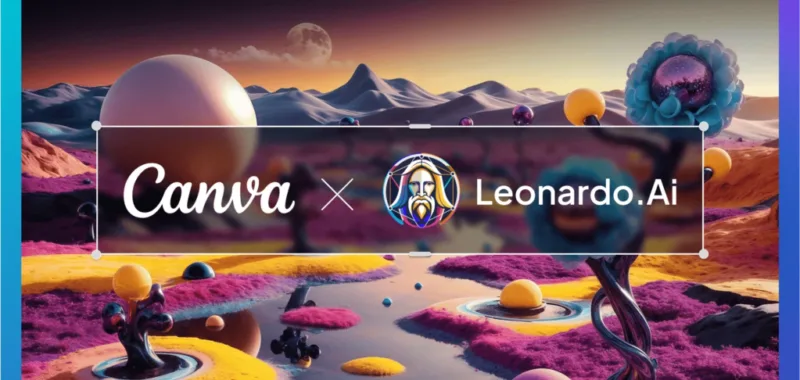Join our daily and weekly newsletters for the latest updates and exclusive content on industry-leading AI coverage. Learn More
Today, creative design platform Canva announced it is acquiring Leonardo AI, a fellow Australian startup offering an advanced generative AI platform for creating images and art based on the open source Stable Diffusion AI models.
While the financial terms of the deal remain undisclosed, Canva has confirmed that Leonardo’s entire 120-strong workforce, including AI researchers and the executive team, will join its AI team.
They will work towards integrating Leonardo’s proprietary tech and “Phoenix” foundation model into Canva’s suite of AI products.
“This field is constantly evolving, and Leonardo’s technical leadership and community impact can’t be overstated. Bringing our worlds together will accelerate each of our teams’ work, taking us from strength to strength, and we can’t wait to get started,” Cameron Adams, co-founder and Chief Product Officer of Canva, said in a statement.
Leonardo to get the Canva push
Leonardo started in 2022 with a mission to optimize the generation of video game assets. The founders, Jachin Bhasme, J.J. Fiasson and Chris Gillis, wanted a solution to address high production costs and long development cycles in game development, but they soon realized the value of the technology in other areas and expanded to categories like advertising, marketing, product design, fashion and education.
The company even launched capabilities to provide users with fine-grained control, including character referencing and real-time canvas to help users direct creative generation.

Within just two years of launch and subsequent updates, Leonardo made waves in the highly competitive creative AI space — dominated by the likes of Midjourney and Adobe — and roped in 19 million users who have cumulatively generated over a billion images.
Just a month ago, the company debuted Phoenix, its first in-house foundation model with a “heightened level of prompt adherence.”
Now, with the acquisition announced today, Leonardo hopes to continue this work with the support and scale of Canva.
First, the company will use Canva’s resources, from financial resources to human expertise and licensed content, to further accelerate research and development efforts and expand the (existing and upcoming) capabilities of its platform — which will continue to operate independently.
According to the creative major, it will help Leonardo with training advanced models but “no Canva user content will be shared with the startup unless Canva users have chosen to expressly opt-in.”
Tapping into Canva’s massive scale
But that’s just one part of the planned work.
Beyond expanding its features and models with Canva’s support, Leonardo will also tap the scale Canva has to offer.
The company’s technology, including the Phoenix model, will be integrated with Canva’s Magic Studio of AI features in the coming months. This will allow over 190 million users of the creative platform instant access to the novel technology.
For Canva, integrating Leonardo’s model and technology will pave the way to serve the community better, allowing creators to push the creative and strategic aspects of their work with faster and more compelling visual generations.
However, as of now, the companies have not shared how exactly the capabilities and technologies will be rolled out to the users.
Part of Canva’s ongoing embrace of gen AI
Notably, Canva has been building its AI capabilities for quite some time as part of its effort to take on the rise of new-age creative companies like Midjourney, Stability AI and Ideogram as well as already massive and continually evolving industry leader Adobe.
The company launched background removal capabilities back in 2019 but the real push came when it visual AI company Kaleido and launched the first version of its Text to Image tool in 2022. This was followed by a full-fledged suite of a dozen AI tools called Magic Studio. These offerings have been used over seven billion times so far.
Apart from Leonardo and Kaleido, Canva also acquired Affinity, Flourish, Pixels, Zeetings, Pixabay and Smartmockups.
Not everyone is a fan of the acquisition or underlying tech. Ed Newton-Rex, founder and CEO of AI certification startup Fairly Trained, called upon on Canva to answer if they will retrain models from scratch off licensed data, or rely on data scraped from the web that may include copyrighted material used without express permission.
A question I’d like to see @canva address: will they retrain Leonardo’s models from scratch, or are they happy using models trained on people’s art without permission? https://t.co/uXOMireYxs
— Ed Newton-Rex (@ednewtonrex) July 30, 2024
Still, for Canva’s users, the addition of Leonardo is likely to only further enhance the web-based creative suite and make it even more competitive with Adobe’s Creative Cloud.
Source link

